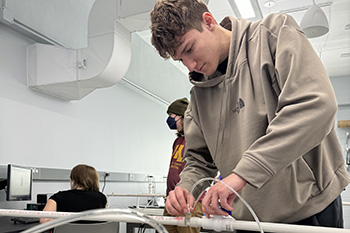Engineering and Engineering B.S.E. Program at Cornell College
Designing solutions for real-world applications
Learn the principles of engineering through in hands-on projects integrated into your coursework. Our faculty experts live and breathe engineering and love teaching the next generation. Looking to develop your professional portfolio with projects, research, and real-world applications of your coursework before you graduate? We have you covered. Our machine shop, electronics lab, and Fabrication Lab provide you the tools and opportunity to solve real-world problems through hands-on application. You will earn an ABET Accredited general engineering degree that covers the fundamentals of engineering, including electrical, industrial, and mechanical which allows you to explore multiple fields and find which most interests you. Plus, with Cornell’s focus on providing a well-rounded liberal arts foundation, you can set yourself apart from employers not just with your engineering expertise but also with your exceptional communication and critical-thinking abilities.
Cornell College is ABET Accredited
 Earn your Bachelor of Science in Engineering (B.S.E.) from Cornell College. This program is fully accredited by the Engineering Accreditation Commission of ABET, the gold standard for engineering accreditation. Our BSE allows you to pursue a professional engineering career.
Earn your Bachelor of Science in Engineering (B.S.E.) from Cornell College. This program is fully accredited by the Engineering Accreditation Commission of ABET, the gold standard for engineering accreditation. Our BSE allows you to pursue a professional engineering career.
Engineering Research
Engineering students get practical experience in both designing and physically building functional tools. Part of your engineering capstone in your senior year will be working on a group project to bring your ideas to life.
You present your ideas to your professor and use the skills you’ve developed in your course of study to solve the engineering problem that inspires you.
Engineering course and degree requirements
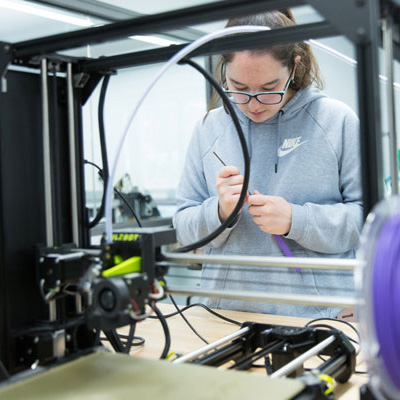
The Ingenuity curriculum helps you develop essential skills and learn the skills necessary to be successful in your future endeavors. Whether you choose to pursue a Bachelor of Arts or a Bachelor of Science in Engineering, you’ll take an array of classes from our mathematics, chemistry, computer science, and engineering departments to meet your major requirements and broaden your horizons.
Starting in your first year, you'll use computer aided design software to model your own designs and use the fused deposition modeling machines (3D printers) in the Fabrication Lab to bring them to life. You will then learn how to test and refine your designs for future improvements. Our faculty are big believers in project-based learning through application.
In order to get the most out of the Engineering program at Cornell, we encourage students to complete math through pre-calculus and take at least one year of physics in high school, with grades of A or B in all their math and science courses.
We also advise students to purchase a PC laptop with a minimum of 16 GB of RAM, 500 GB SSD of storage, i5-class Intel Processor, Windows 64-Bit operating system, and at least 2 USB ports.
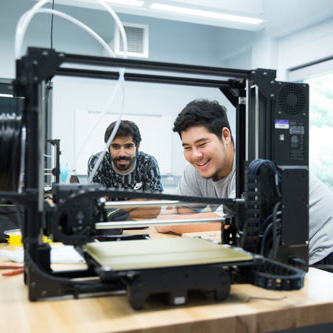
Engineering capstone
Solve complex problems. Draft professional-level reports to showcase your findings. Present your work to peers and professors. From your very first engineering course on campus, you’ll start learning real-world engineering skills. And when you graduate, you’ll have a portfolio of your work to impress future employers.
Want to dive deep into research? Cornellians of all ages can create important and groundbreaking research if they’re given the right tools. Our exceptional, student-focused faculty offer opportunities to collaborate with them on research in their areas of interest each summer as part of the Cornell Summer Research Institute. Participating students receive a stipend and present their work at our Student Symposium.
What will you do in Engineering class at Cornell?
Manage a project. Work in a team. Build. Test. Students in Manufacturing Processes bring a concept to life…then add in a little competition.
Engineering outside the classroom
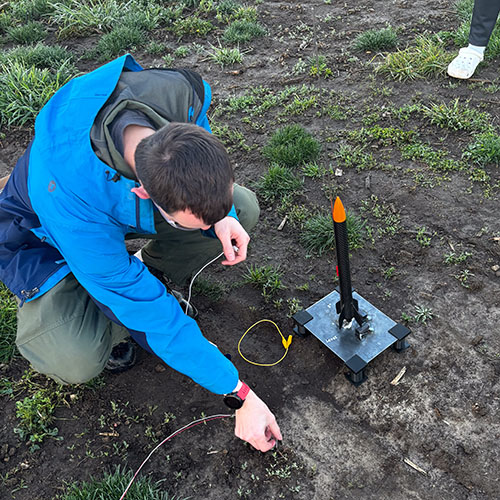
Collaborate with other engineering enthusiasts as a member of the Engineering Club. In spring 2024 the club spent blocks 5-8 designing, building, and then finally launching a super-sonic rocket in a field near campus. What will the Engineering Club do next? You can help decide.
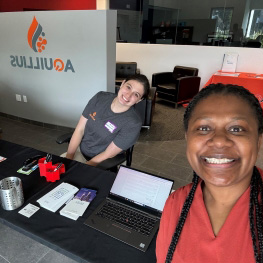
Internships in Engineering
Discover how far your engineering degree can take you. Our students have secured internships at:
- Illinois Department of Transportation, Illinois
- Sentera, Minnesota
- Pilkington NSG, Illinois
- Microtek, California
- Aquillius, Catalyst Internship, California
- Enhanced Automation, Wisconsin
- Crystal Group, Iowa
- Graham Construction, Iowa
- Ramco Innovations, Iowa
- Kimley-Horn, Arizona
What are Cornell students doing in internships? Check out their blogs.
Career opportunities for engineering graduates
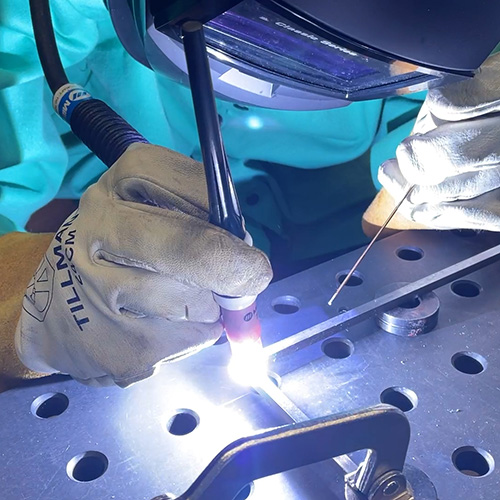
Cornellians have been hired as mechanical engineers, civil engineers, mechanical design engineers, design engineers, CAD design engineers, application engineers, and so much more. An engineering degree from Cornell College will also position you for graduate studies in these exciting, emerging fields. According to the U.S. Bureau of Labor Statistics, engineering jobs in 18 unique fields, from biomedical engineers to agricultural engineers to environmental engineers, are all projected to expand in the coming years.
Your professors and advisors will be with you every step of the way. They will work one-on-one with you to help you explore internships, and they’ll review your job applications and graduate school applications to ensure you’re putting your best foot forward. We take great pride in our students who found their place in industries across the nation that are aligned with their engineering passions, and we’ll help you to achieve the same.

